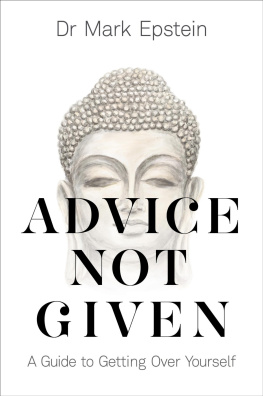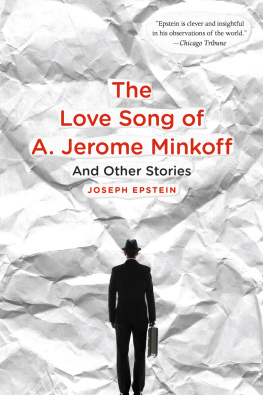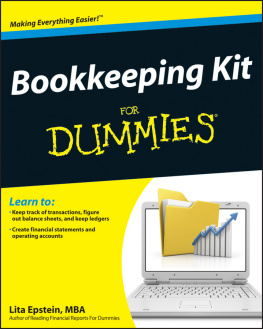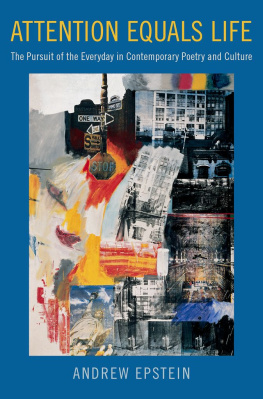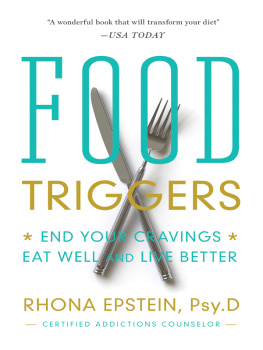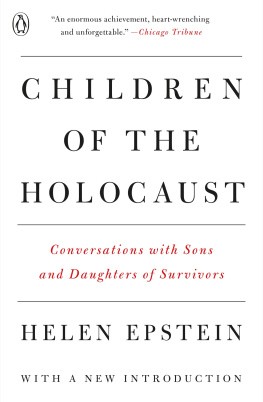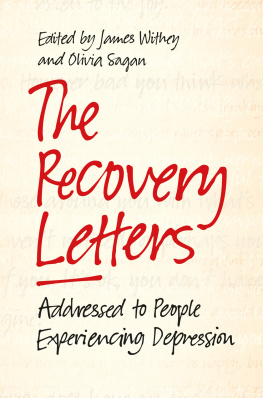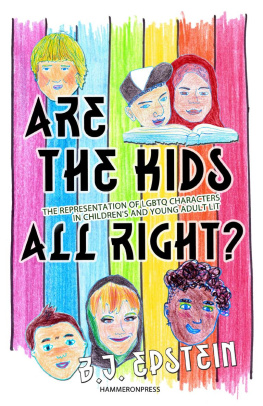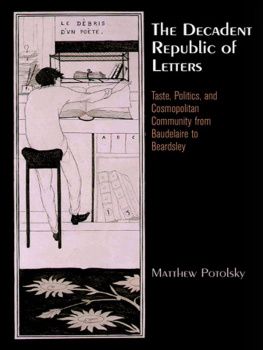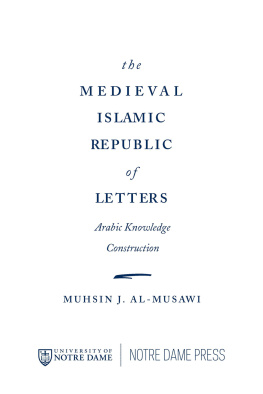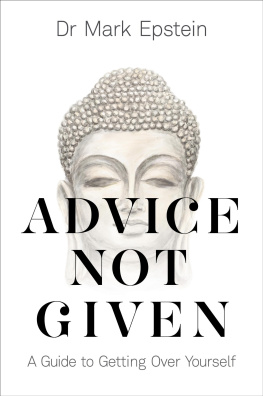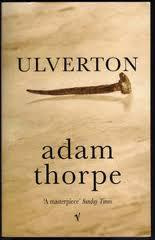Epstein - Advice Not Given
Here you can read online Epstein - Advice Not Given full text of the book (entire story) in english for free. Download pdf and epub, get meaning, cover and reviews about this ebook. year: 2018;2013, publisher: Hay House, genre: Religion. Description of the work, (preface) as well as reviews are available. Best literature library LitArk.com created for fans of good reading and offers a wide selection of genres:
Romance novel
Science fiction
Adventure
Detective
Science
History
Home and family
Prose
Art
Politics
Computer
Non-fiction
Religion
Business
Children
Humor
Choose a favorite category and find really read worthwhile books. Enjoy immersion in the world of imagination, feel the emotions of the characters or learn something new for yourself, make an fascinating discovery.
Advice Not Given: summary, description and annotation
We offer to read an annotation, description, summary or preface (depends on what the author of the book "Advice Not Given" wrote himself). If you haven't found the necessary information about the book — write in the comments, we will try to find it.
Advice Not Given — read online for free the complete book (whole text) full work
Below is the text of the book, divided by pages. System saving the place of the last page read, allows you to conveniently read the book "Advice Not Given" online for free, without having to search again every time where you left off. Put a bookmark, and you can go to the page where you finished reading at any time.
Font size:
Interval:
Bookmark:

The Trauma of Everyday Life
Thoughts without a Thinker: Psychotherapy from a Buddhist Perspective
Going to Pieces without Falling Apart: A Buddhist Perspective on Wholeness
Going on Being: Buddhism and the Way of Change
Open to Desire: The Truth About What the Buddha Taught
Psychotherapy without the Self: A Buddhist Perspective

First published and distributed in the United States of America by:
Penguin Press, an impr int of Penguin Random House LLC,
375 Hudson Street, New York, New York 10014
First published and distributed in the United Kingdom by:
Hay House UK Ltd, Astley House, 33 Notting Hill Gate, London W11 3JQ
Tel: +44 (0)20 3675 2450; Fax: +44 (0)20 3675 2451; www.hayhouse.co.uk
Publ ished and distr ibuted in Australia by: Hay House Australia Ltd, 18/36 Ralph St, Alexandr ia NSW 2015
Tel: (61) 2 9669 4299; Fax: (61) 2 9669 4144; www.hayhouse.com.au
Copyr ight 2018 by Mark Epstein
The moral r ight s of the author have been asser ted.
Designed by Amanda Dewey
A portion of Chapter 3 first appeared under the title The Trauma of Being Alive in The New York Times, August 3, 2013, and a portion of Chapter 6 appeared as Beyond Blame in Tricycle: The Buddhist Review, Summer 2009.
Excerpt from The Sword in the Stone from Faithful and Virtuous Night by Louise Glck. Copyright 2014 by Louise Glck. Reprinted by permission of Farrar, Straus and Giroux.
All rights reserved. No part of this book may be reproduced by any mechanical, photographic or electronic process, or in the form of a phonographic recording; nor may it be stored in a retrieval system, transmitted or otherwise be copied for public or private use, other than for fair use as brief quotations embodied in articles and reviews, without prior written permission of the publisher.
The information given in this book should not be treated as a substitute for professional medical advice; always consult a medical practitioner. Any use of information in this book is at the readers discretion and risk. Neither the author nor the publisher can be held responsible for any loss, claim or damage arising out of the use, or misuse, of the suggestions made, the failure to take medical advice or for any material on third party websites.
A catalogue record for this book is available from the British Library.
ISBN 978-1-78817-155-7 in print
ISBN 978-1-78817-180-9 in ePub format
ISBN 978-1-78817-181-6 in Kindle format
ForArlene
Praise andblame, gain and loss, pleasure and sorrow come and golike the wind. To be happy, rest like a gianttree in the midst of them all.
T HE B UDDHA
Except in the case of those introduced by first and last names, I have changed names and other identifying details or constructed composites in order to protect privacy.
A paragraph of Chapter 1 and a portion of Chapter 3 first appeared in the New York Times on August 3, 2013, under the title The Trauma of Being Alive. A portion of Chapter 6 first appeared in the summer 2009 issue of Tricycle: The Buddhist Review under the title Beyond Blame.
CONTENTS
INTRODUCTION
Ego is the one affliction we all have in common. Because of our understandable efforts to be bigger, better, smarter, stronger, richer, or more attractive, we are shadowed by a nagging sense of weariness and self-doubt. Our very efforts at self-improvement orient us in an unsustainable direction since we can never be certain whether we have achieved enough. We want our lives to be better but we are hamstrung in our approach. Disappointment is the inevitable consequence of endless ambition, and bitterness a common refrain when things do not work out. Dreams are a good window into this. They hurl us into situations in which we feel stuck, exposed, embarrassed, or humiliated, feelings we do our best to keep at bay during our waking hours. Our disturbing dreams are trying to tell us something, however. The ego is not an innocent bystander. While it claims to have our own best interests at heart, in its relentless pursuit of attention and power it undermines the very goals it sets out to achieve. The ego needs our help. If we want a more satisfying existence, we have to teach it to loosen its grip.
There are many things in life we can do nothing aboutthe circumstances of our childhoods; natural events in the outer world; the chaos and catastrophe of illness, accident, loss, and abusebut there is one thing we can change. How we interact with our own egos is up to us. We get very little help with this in life. No one really teaches us how to be with ourselves in a constructive way. There is a lot of encouragement in our culture for developing a stronger sense of self. Self-love, self-esteem, self-confidence, and the ability to aggressively get ones needs met are all goals that most people subscribe to. As important as these accomplishments may be, however, they are not enough to guarantee well-being. People with a strong sense of self still suffer. They may look like they have it all together, but they cannot relax without drinking or taking drugs. They cannot unwind, give affection, improvise, create, or sympathize with others if they are steadfastly focused only on themselves. Simply building up the ego leaves a person stranded. The most important events in our lives, from falling in love to giving birth to facing death, all require the ego to let go.
This is not something the ego knows how to do. If it had a mind of its own, it would not see this as its mission. But there is no reason for the untutored ego to hold sway over our lives, no reason for a permanently selfish agenda to be our bottom line. The very ego whose fears and attachments drive us is also capable of a profound and far-reaching development. We have the capacity, as conscious and self-reflecting individuals, to talk back to the ego. Instead of focusing solely on success in the external world, we can direct ourselves to the internal one. There is much self-esteem to be gained from learning how and when to surrender.
While our culture does not generally support the conscious de-escalation of the ego, there are silent advocates for it in our midst. Buddhist psychology and Western psychotherapy both hold out hope for a more flexible ego, one that does not pit the individual against everyone else in a futile attempt to gain total surety. These two traditions developed in completely different times and places and, until relatively recently, had nothing to do with each other. But the originators of each traditionSiddhartha Gautama, the South Asian prince who renounced his luxurious lifestyle to seek an escape from the indignities of old age, illness, and death; and Sigmund Freud, the Viennese doctor whose interpretation of his own dreams set him on a path to illuminate the dark undercurrents of the human psycheboth identified the untrammeled ego as the limiting factor in our well-being. As different as these two individuals were, they came to a virtually identical conclusion. When we let the ego have free rein, we suffer. But when it learns to let go, we are free.
Neither Buddhism nor psychotherapy seeks to eradicate the ego. To do so would render us either helpless or psychotic. We need our egos to navigate the world, to regulate our instincts, to exercise our executive function, and to mediate the conflicting demands of self and other. The therapeutic practices of both Buddhism and psychotherapy are often used to build up the ego in just these ways. When someone is depressed or suffers from low self-esteem because he or she has been mistreated, for example, therapy must focus on repairing a battered ego. Similarly, many people have embraced the meditation practices of the East to help build up their self-confidence. Focus and concentration diminish stress and anxiety and help people adapt to challenging home and work environments. Meditation has found a place in hospitals, on Wall Street, in the armed forces, and in sports arenas, and much of its benefit lies in the ego strength it confers by giving people more control over their minds and bodies. The ego-enhancing aspects of both of these approaches are not to be minimized. But ego enhancement, by itself, can get us only so far.
Font size:
Interval:
Bookmark:
Similar books «Advice Not Given»
Look at similar books to Advice Not Given. We have selected literature similar in name and meaning in the hope of providing readers with more options to find new, interesting, not yet read works.
Discussion, reviews of the book Advice Not Given and just readers' own opinions. Leave your comments, write what you think about the work, its meaning or the main characters. Specify what exactly you liked and what you didn't like, and why you think so.

